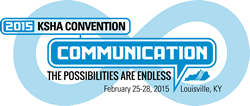Impact of Social Skills Training on Adolescents With Autism
Thursday, 5:15pm
Exhibit Hall 1AB
Poster 10
Social-pragmatic skills are known to be impaired in adolescents with high-functioning autism (HFA). Early on, children with HFA do not alert to certain types of social stimuli such as maintaining eye contact. As they reach adolescence, their social development becomes increasingly delayed compared to typically developing peers. Typical social behaviors such as natural gesturing to enhance communication and the ability to maintain a conversation topic have been shown to be difficult and so may impair the ability to develop social relationships. Secondary deficits have also been shown to result from limited social relationships including reduced quality of life. Consequently, it is important that speech-language intervention target improving pragmatic skills (Barry et al., 2003). Therefore, this critically appraised topic investigated the effectiveness the effectiveness of social skill group therapy in increasing social-pragmatic abilities in adolescents diagnosed with high-functioning autism. Following database searches and application of inclusion/exclusion criteria, three relevant articles emerged and were reviewed. One well-designed quasi-experimental study was selected as best evidence and reviewed. Forty-six adolescents (M= 14.6), divided into six groups, participated in the study. Groups met 1-1.5 hours for 12 weeks for social skills group treatment. Primary outcome measures included parent-report questionnaires measuring social behaviors and social strengths. Results indicated significant improvement in overall social competence. Participants also reported the greatest improvement in simple pragmatic conversational abilities. Results provide evidence to support social skills group intervention to increase the social-pragmatic skills of adolescents with HFA. Implications for practice, education and future research will be discussed.
Track:
Poster
